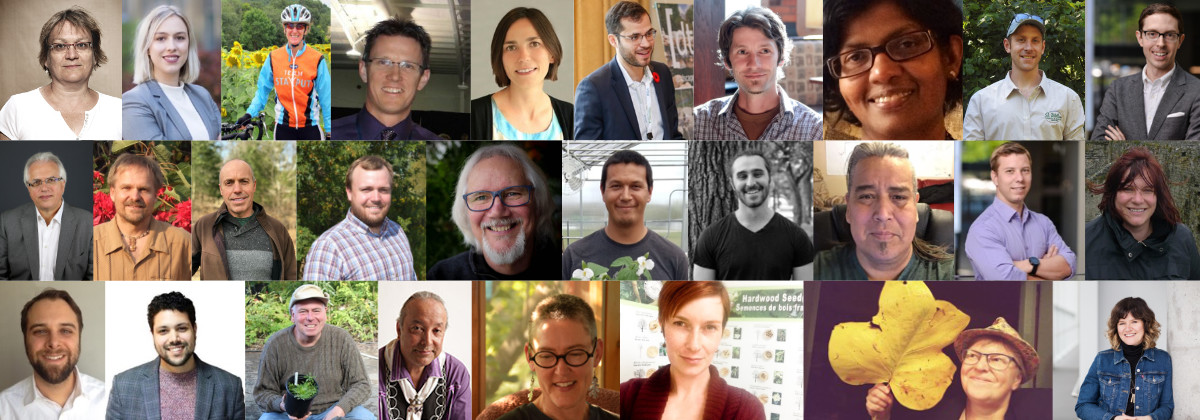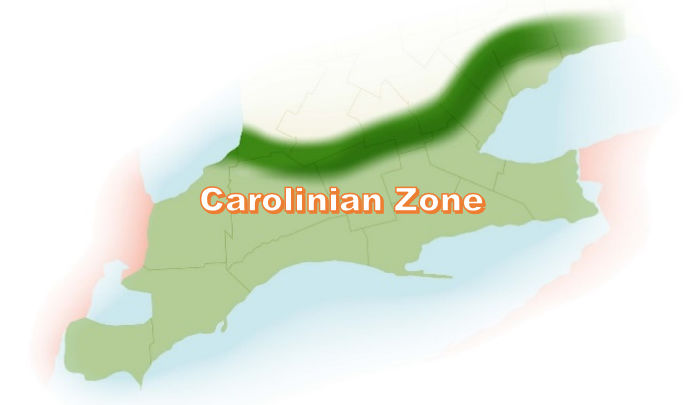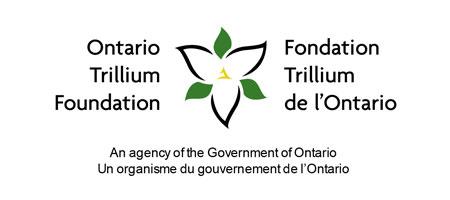Presented by Carolinian Canada and WWF-Canada
Wednesday, March 7, 2018
St. James Cathedral Centre
65 Church St., Toronto
*Catering Deadline 3:00pm March 2*
Registrations after March 2 will not be included in catering numbers. After the deadline you will be on your own for food.

Confirmed Speakers and Panelists
Megan Leslie (President and CEO, World Wildlife Fund - Canada)
Dr. Dan Longboat (Director, Indigenous Environmental Studies and Science Program, Trent University)
Allan Arthur (President, St. Williams Nursery and Ecology Centre)
Tony DiGiovanni (Executive Director, Landscape Ontario)
Andre Vashist (Director of Social Enterprise & Social Finance, VERGE Capital)
Lorraine Johnson (Author and Native Plant Gardening Guru)
Dr. Diane-Laure Arjaliès (Assistant Professor, Ivey Business School, Western University)
Matthias Pries (Associate, MaRS Centre for Impact Investment)
Kyle Williams (native plant grower, Maajigin Gumig Nursery, Aamjiwnaang First Nation)
Vic Bernyk (wholesaler and retailer, Native Trees and Plants)
Suba Sivakumar (retailer, Van Luyk’s Nursery)
....and many more!
As well as high-profile representatives from First Nations, the social finance sector, native plant nurseries, conservation authorities, municipalities and NGOs.
Daytime Session 9am-5pm
Social Finance Reception 5pm-7pm
How do we work together to build a thriving native plant industry?
There’s a quiet revolution underway. In the Zone and other successful gardening programs for native plants and pollinators demonstrate the growing awareness that what we plant makes a difference. Businesses, institutions, municipalities and homeowners across Ontario are creating attractive, green, climate-resilient, natural infrastructure with native plants.
This growing desire to take action represents a shift in the market for the billion-dollar horticulture industry in Ontario. Professional planters and lay enthusiasts are saying that demand for native plants exceeds supply. First Nations and entrepreneurial ecologists are already leading the way. Is it time for the industry to ramp up production and distribution?
Join us as we map the native plant supply chain with leaders from the horticultural and landscaping sectors, governments, First Nations, social finance, retail distributors, NGOs and garden clubs.
Together we will explore opportunities to empower individuals, businesses and communities to grow healthy, beautiful green infrastructure naturally fit for the southern Ontario landscape.
Questions the Forum panels will explore
What are the challenges and opportunities? How do we accelerate native plant production and sales? How do we create common standards for stock sourcing and labelling? How do we educate gardeners to choose locally-grown native plants? What role can the social finance sector play in driving investment? Are we ready for an “In the Zone” tag that identifies a plant as bona fide local, native and ethically grown?
Did you know?
One quarter of all Canadians live in Canada’s most biodiverse region. Stretching from the GTA to Windsor, Ontario’s Carolinian Zone also has Canada’s highest concentration of endangered and threatened species. Why? Its life support system is in crisis. Over 95 per cent of the Carolinian Zone is privately owned. Property owners, large and small, play a critical role in determining the fate of the life support system.

Science tells us that healthy ecosystems are the cheapest, most efficient and effective tool to keep air and water clean, reduce extreme weather and other climate impacts, store carbon, replenish soils and preserve biodiversity. Healthy ecosystems are also essential to human health and a thriving economy.
Native plants are the basic building blocks of this life support system, producing the oxygen we breathe and turning sunlight into food. Our native butterflies and bees, flying-squirrels and chickadees, evolved together with our native plants over millennia, many of them developing highly specialized relationships with specific species of plants. One native oak tree supplies hundreds of native species with food and shelter, whereas an exotic ginkgo in Ontario might support a single insect species…and probably no birds at all!
Forum Details
Daytime Session 9am-5pm
Social Finance Reception 5pm-7pm
Full Registration (Daytime session + Social Finance Reception) - $150 - Carolinian Canada Members Price $135
Daytime session only (9am-5pm) - $125 - Carolinian Canada Members Price $90
Social Finance Reception only (5pm-7pm) - $50
Join / Renew a Membership Today!
This event is part of Carolinian Canada’s Big Picture Collaborative, which aims to reverse the trend of habitat loss in Ontario’s Carolinian Zone, and our premier networking series for Ecosystem Recovery.
Presented by Carolinian Canada and WWF-Canada
with support from the Ontario Trillium Foundation and other partners



With Generous Support From
Great Lakes Sponsors

Prairie Sponsors

Lake Sponsors

Pond Sponsors



